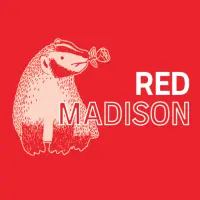Neutrality is a Lie: The Academy Under Siege
Neutrality is a Lie: The Academy Under Siege

Neutrality is a Lie: The Academy Under Siege

by Dahlia Green
American higher education is under assault.
Research funding, whether for sciences or humanities, has been cut off. The thugs of ICE descend upon college campuses, abducting students who dared speak out against the American-backed genocide in Gaza. International students are subject to a campaign of terror and arbitrary restrictions justified on vague “national security” grounds, a paper-thin disguise for racism and a targeted anti-intellectualism.
The most prestigious and wealthy universities, those that can best defend themselves, have responded to this assault by rolling over. Administrators have rushed to gag their students and faculty, to invite the regime to monitor their output for ideological deviation, and fork over whatever bribes the the state demands. In some cases, these lackeys of capital have used the opportunity to settle scores with their faculty, slashing positions and trumpeting the closure or gutting of departments and programs they disapprove of with a malicious glee. They have not used their privileges to stand up to the assault on their staff, students, and supposed values; they have done everything in their power to ensure its success.
The representatives of the loyal opposition have said little in response, barely bringing themselves to condemn the practice of disappearing dissidents they themselves would rather like to disappear. Jeffries and the liberal establishment he represents have decided that the universities are not popular enough for them to defend. They deem this to be another of Trump’s “distractions”, which they should ignore to talk about the more comfortable, “electable” topics of social security or law and order. These heirs to the Copperheads will not save us.
Into this carnage step the gentlemen (and it is almost all men) of the Academy who think they have found the answer to this crisis.
Writing for the Dispatch, Evan D. Morris cries for the sciences to be set free from the humanities. After all, he says, it is the fault of the ideologically astray, “woke” humanities that the axe has fallen upon universities, not the dutifully apolitical sciences! Mr. Morris lets his contempt for the humanities blind him to the reality at hand. He conjures a fantasy in which he can throw the English department to a bear in order to escape, not realizing that he will be next on the menu. In doing so, he becomes a collaborator in waiting, a delusional toadie of the regime. Pity him, for such fools do not tend to outlive their usefulness.
In contrast, Jacob Hale Russell & Dennis Patterson, both humanities professors at Rutgers University, set out to save the university, humanities and all. Writing in the Guardian, that bastion of the British Liberal, they bemoan the assault on higher education, the decline in public trust in universities, and the tendency of administrators to throw their faculty under the bus. They rightly regard this as a crisis – but one which is strictly institutional, rather than political. In their worldview, the problem is not that universities will no longer be spaces of open political struggle, but that they have been so in the first place.
Their solution is for the academy to further retreat into institutional redoubts, to extricate itself from the very field of politics where this battle is now being fought. They propose, in other words, to vacate the field of conflict before the battle has even been fought, retreating behind a shield of legitimating, institutional neutrality.
Such a position is the equivalent of burying one’s head in the sand, of substituting lofty sounding phrases like “freedom of inquiry” for a hard reckoning with the grim realities facing higher education. Russell and Patterson hail the “Chicago Principles” while failing to engage with the fact that the University of Chicago has begun the liquidation of its humanities grad programs and cracking down on “DEI”, executing the program of the regime alongside empty pronouncements of academic freedom.
The “neutrality” they trumpet is a false hope, little more than a smokescreen for the shock troops of the right in their effort to dismantle higher education. Perhaps, as Russell and Patterson say, an error was made in the past regarding the left’s discursive strategies, that “safetyism” was a mistake. Even so, we cannot change the past, and no amount of performative neutrality will stay the axe. Attempting to adopt a position of neutrality will only embolden and strengthen the assault on universities, not stop it.
Indeed, many colleges already adopted so-called neutrality in response to the wave of protests that swept college campuses in the last two years. This supposed neutrality has not coincided with a flourishing of free inquiry, as Russell and Patterson would have us think, but an intensification of the assault on campus groups condemned by the state and right-wing activists!
What then, is to be done?
The true solution lies in embracing the political nature of the struggle now ongoing on college campuses, in fostering consciousness and solidarity among students and staff alike. We must organize ourselves, in unions, in professional organizations, in student organizations, and we must work together to fight. Graduate assistant unions and professor’s associations must create a united front to resist pressure from administrations and the state to curb free inquiry and end the very existence of academia.
Administrations which fight must receive full support in their struggle, while those that capitulate must be fought at every turn, pressured into reversing course. Administrators have generally proven to be cowards, and so we must make it a more unappealing proposition to go to war with their own university than it is to comply with the state’s directives. If they are punished for assisting in the assault and rewarded for resisting, the hope is that some might find some spine.
This will not be easy. It will require hard work, cooperation, and a willingness to endure hardship. Yet the advancement of human knowledge is far too precious a pursuit to abandon without a fight.